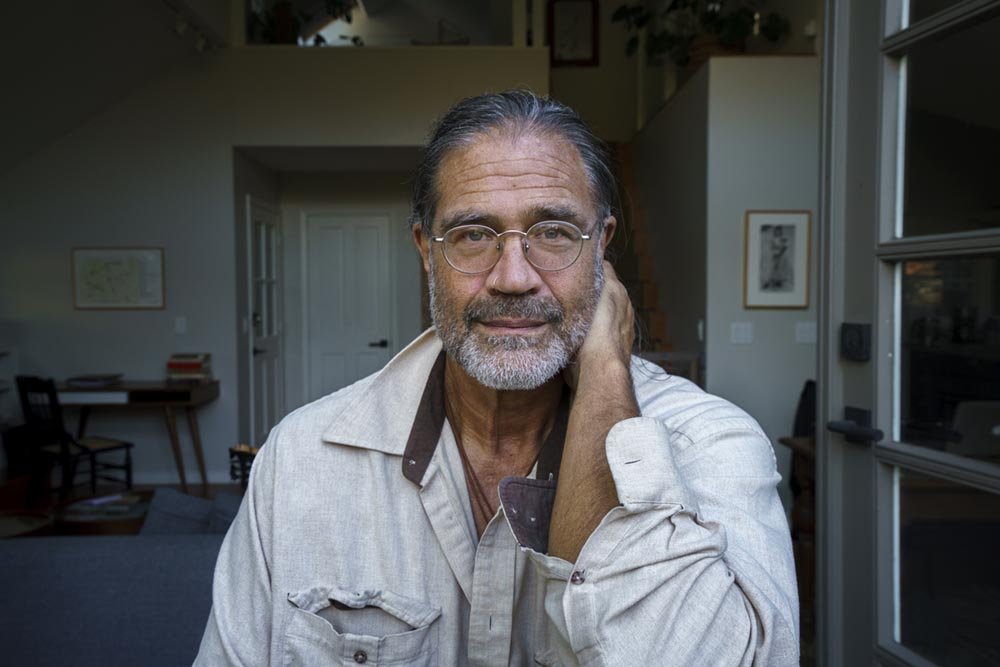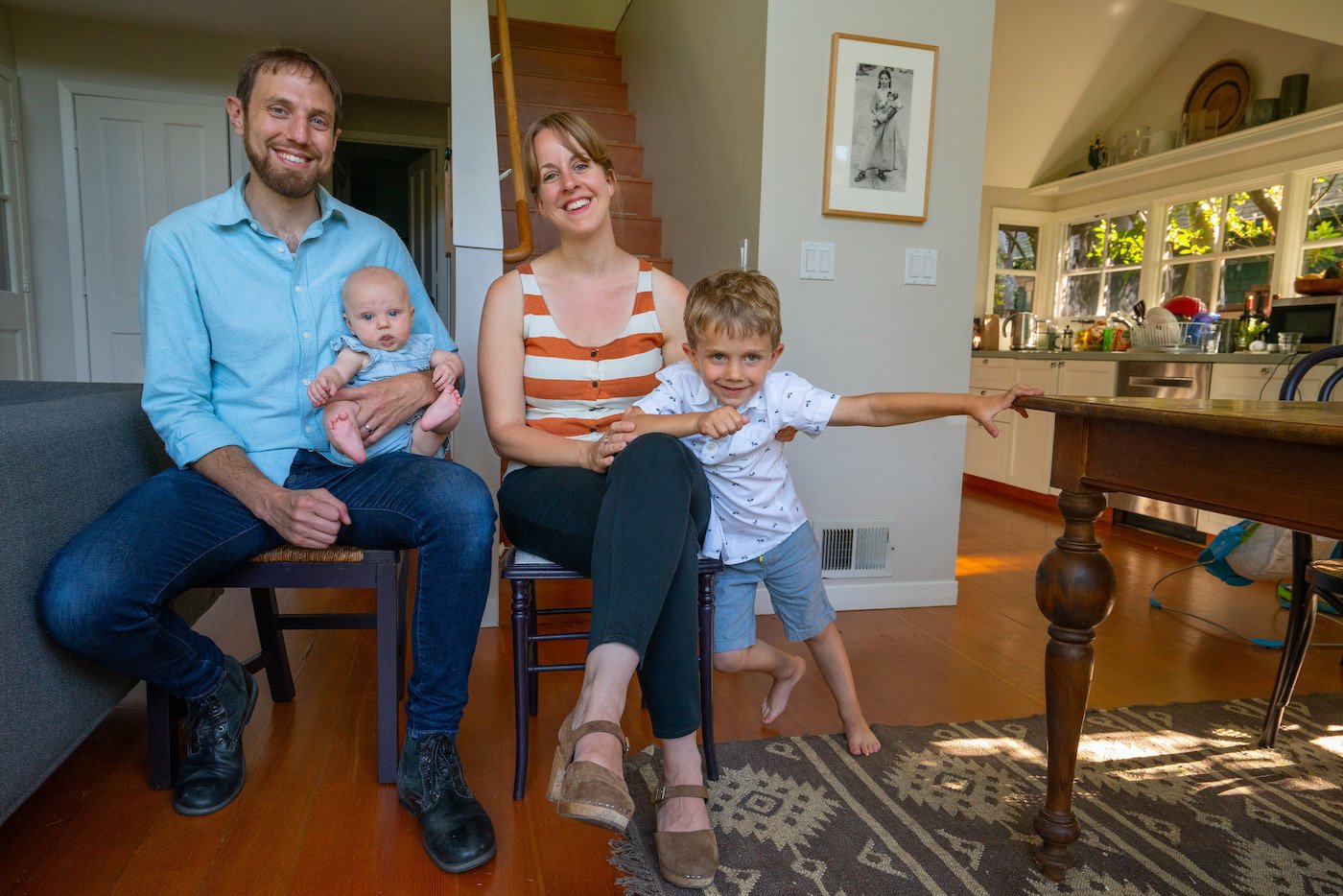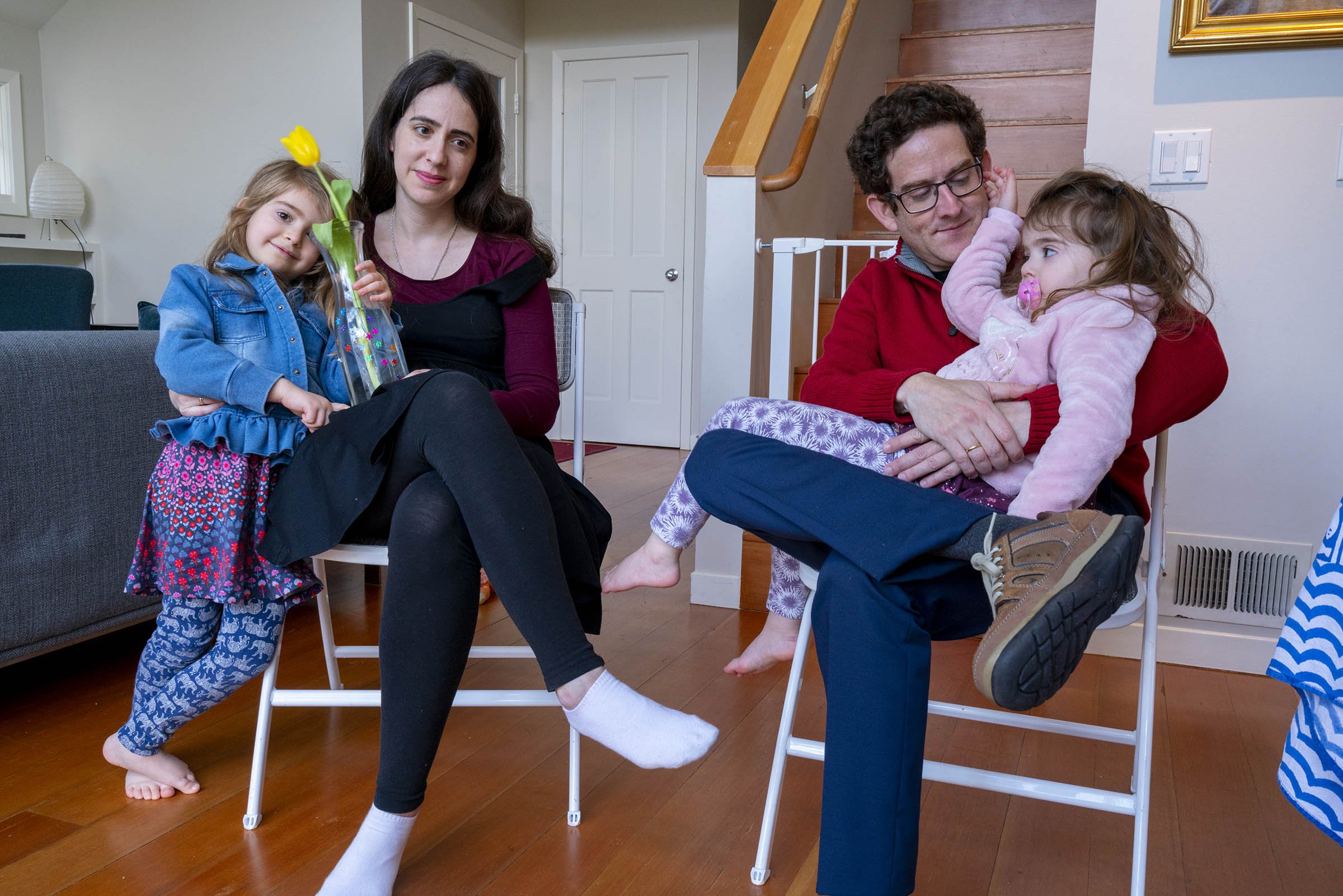Sara Camhaji
Writer—January through June 2023
Based In Mexico City
Q: In a way you lived the dream of the Peleh residency, in terms of creating art, and integrating your creative life with family experiences.
A: At the end of the residency we had a salon, a moment to read from my new book of poems and to create a performance of healing and integration. The kids were involved, my husband Marcos was involved, they all knew what was going to happen. They took photos, and they helped me in the arts and crafts of the installation. The kids went with me to buy the fabric, buy the bubbles, to make decisions with me. Sometimes it was annoying because I needed to go faster, but now I realize that it was important, not only as an art project, but as a transgenerational mystical one. The kids liked to have a task in my world that is not motherhood-related. A serious task regarding a serious project that is not in school, or part of an art fair.
Q: The book (“Don’t Take Photos of the Landscape…”) which is about your experience losing your parents as a child, is luminous and profound, but also a record of grieving. How did you go about integrating your kids into the content of the work?
A: Throughout this process, I came to see that I wanted a dialogue between my kids and my dead parents, and also with my own childhood. I wanted to keep all of them, including myself, in the same line. Or in the same frame, you might say. I wanted them to see me take this part of my life seriously, to understand the nature of my childhood and orphanhood, and to say it out loud. I wanted them to see my vulnerability, and to give them some empowerment to go through their own vulnerability. I want them to see they are part of that story, and could we all rebuild this connection towards our collective loss.
Q: You’ve mentioned that the residency gave you even more of an appreciation of caring as a way of living.
A: The orientation of caring that characterizes Peleh — as a team of collaborators and its founders — has influenced me deeply. I now think of caring as a kind of cascade of attention. Peleh has cared for me as an artist, which allows me to take care both of my family and my work. And now that we are back in Mexico, we are thinking of ways that we can extend that care to other artists who might need it. I also see that caring is an “art.” You have to take care about how you take care, to be respectful of boundaries, and to understand the dynamic of care-giving and care-taking.
Q: You’ve mentioned a Hebrew phrase that captures the complicated but brilliant dynamic of giving and receiving care.
A: When one does a mitzvah [an act of care-taking or charity], the person receiving the care might say Todah, or thank you, then add: Tizke la mitzvot, which means may you have the merit to do more Mitzvot. The person doing the giving can respond with Tizke laasot, or may we have the merit to do more. It’s a way of saying that you can only do a mitzvah by doing it with, or though, another. To become a giver there has to be a receiver.
Sara Camhaji (Mexico City, 1986) is a writer, teacher, and mother. Her work is a natural response to her lived experience and the emotional dimensions she has inhabited. She has told and written stories for her entire life. Poetry, the axis of her exploration, has prompted her to develop new discursive forms in close contact with inner human reality. She has a masters in creative writing and two published works: Maleza (Alboroto Ediciones, 2022) and Don’t take photos of the landscape; take portraits with the view of the background if you want (Elefanta Editorial, 2023), both in Spanish and English. A selection of her poems appeared in the UNAM’s Periódico de Poesía and different literary supplements. Sara, with her partner and kids, is based in Mexico City, where they own Freims, a cultural venue.
She is currently working on a novel while researching the topic of care, thought of as the gravitational center of life, a relational orbit, and an identity seal.







